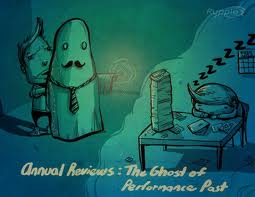As the Holiday Season approaches and we reflect on what was accomplished during 2013, I have talked with business leaders and managers at all levels about workplace motivation.
Not surprisingly, they all tend to agree that it is a challenge to continue to keep others in their workplace motivated and productive. What is important to recognize and acknowledge is that what motivates one person to succeed can be quite different than what drives another. Tweet this
As a leader, if you want to maximize productivity in your work environment, it is crucial that you understand, on an individual basis, what motivates each unique person on your team.
When you are able to create a motivating work environment, employees are happy, staff turnover and absenteeism is lower, productivity is increased, customers/clients are satisfied and your organization’s financial performance is much better.
In this blog post, I want to share some tips on what it takes and how to achieve motivation in your workplaces. I hope these will resonate with you.
Reflect Honestly On Your Own Leadership Skills Tweet this
How are you doing as a leader? Where do you sit on Santa’s naughty or nice list?

How you lead is critical. Your role as a leader is to influence and encourage your employees to focus their actions on accomplishing the goals and objectives you have set for your organization.
A successful leader will stimulate motivation in the workplace by doing the following:
- Provide a clear vision for your organization – articulate your mission, vision and company values clearly, consistently and frequently;
- Clarify established goals that translate your vision, mission and company values;
- Demonstrate exceptional interpersonal skills and build strong working relationships with superiors, peers, direct reports and other staff;
- Display integrity, as well as showing extraordinary effort, especially when dealing with difficult situations or tasks, and without concealing vulnerability;
- Be a trustworthy leader. When employees know you have their back and are looking out for their best interests, you will win their trust and they will be more motivated to achieve.
- Bring out the best in your people. Coach and encourage, don’t micromanage or threaten.
Do Your Employees Feel Their Roles Are Important and Contributions Are Recognized?

Do all of your employees understand the importance of their role, activities and contributions to your overall success?
Take time to communicate to each of your employees about two things: (1) the importance of their individual role within the organization and (2) the importance of their personal contributions to the achievement of the business goals of your organization, which you have communicated to them.
When your employees clearly understand how their contributions support the organization’s goals and objectives, they are able to give their personal best to your organization.
Clarify job expectations simply and clearly – This may seem onerous but it doesn’t need to be.
Consider this approach:
- Brainstorm and record all of the major work tasks and business processes that have to be carried out within your team/organization;
- Determine the time each task takes to be accomplished well;
- Group all sequential tasks and those requiring similar skill sets together, as much as possible;
- Delegate the work tasks among your employees, ensuring that workload distributions are fair and that work tasks fit with employee skill sets.
- Articulate relevance in each work task in order to cultivate increased performance levels and loyalty.
Define your organizational structure clearly – It is imperative that each of your employees knows and understands how their role relates to or is codependent on the roles of their peers; who they report to and why; and who they go to when problems arise which they cannot solve on their own.
Limit rules, regulations, policies and structured processes – This might seem a little surprising to you however rules and regulations do bring a sense of security to many employees. These employees feel they are in “safe hands” and that they are being led by a leader who knows where s/he is going.
Pay Attention To What Matters; Focus On The “What” and Let Staff Focus On The “How”

Do your annual performance review and assessment processes focus on helping employees improve, and aligning their activities and goals for next year with those of the organization’s, or do they tend to be backward looking, focused on the past, and reinforcers of the negatives that act as drags on motivation before the new year even kicks off. Is your team embracing the challenges of the year ahead, or starting to plan their exit strategy?
As a leader, I encourage you to pay attention to what matters and focus on the “what” of the work, leaving the “how” to your employees. Articulate what has to be achieved and then let them get it done. View mistakes as opportunities to fix problems and move on, not overreact with new policies or rules.
Offer career advancement and improvement opportunities – Today’s employees are always looking for new ways to learn, improve their skills and invest in themselves. Find ways to elevate your employees’ high-potential and/or high performance status. When employees are given opportunities to learn to do more complex tasks, it helps to build their self-esteem and enables them to climb the corporate “jungle gym”.
Give regular feedback and opportunities to converse with senior leaders – Give your employees regular feedback and the opportunity to chat with you and/or your manager or other senior leaders. This will make your employees feel cared for and respected for their contributions. This will boost their self-worth and have a direct impact on their commitment and overall performance.
Build trust and nurture good working relationships with everyone – Build a healthy working relationship with others through perceived fairness in workload distribution and total rewards (compensation, benefits and recognition). Treat employees as trusted experts who are expected to deliver results. Perceived fairness in how you reward and discipline employees are other important factors in developing strong workplace motivation.
In summary, it is your values, attitudes and ability to lead and reward your employees that will have the most impact on their motivation in the workplace. Their motivation in turn will have a direct positive impact on your organization’s performance. Your customers/clients and other stakeholders will love dealing with a motivated team and your organization’s financial performance and reputation in the job market will be significantly enhanced.
How will you motivate your employees to succeed?
Happy Holidays!

Linda A. Barlow CHRP
Global HR Thought Leader
